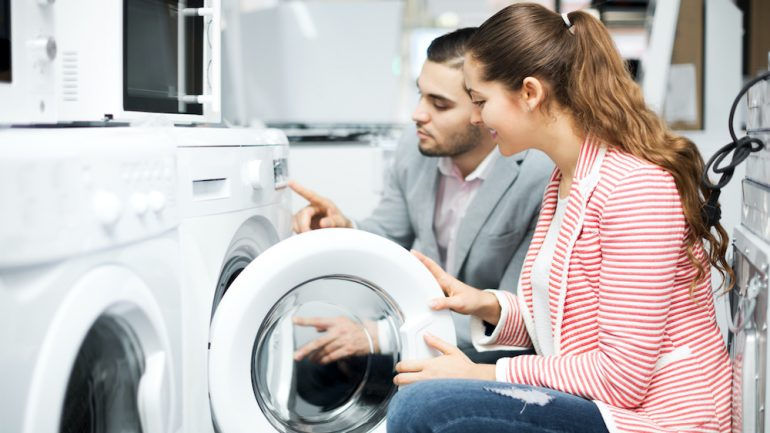
While it’s commonplace for Americans to haul washers, dryers, and refrigerators to new homes across the country, it’s an entirely different scenario when moving abroad. Not only is the freight costly, but the electrical systems are also different. Here’s a guide to what appliances can be easily moved and what should probably be left behind.
The Basics of Moving Appliances
In the United States, outlets are called a “Type A” socket. Outlets in Europe and most of the rest of the world (outside North and South America) are shaped differently, requiring an adaptor.
While the American system uses a current of up to 125 volts, European items use 220 volts. Newer appliances in the United States are dual voltage, meaning they will automatically switch voltage systems when plugged in through the adaptor.
So which items should you move, and which should you simply replace once you arrive?
Personal Care Items
Newer hair dryers, curling irons, flat irons, and electric razors can be used with an adapter as long as the cords are labeled as dual voltage. If an appliance is not labeled dual voltage or requires an extremely high wattage, it’s safer to replace it with a European model than risk using a converter.
Televisions
Older televisions are made to work in the country of origin and probably will not function even with an adaptor. However, newer TVs might be dual voltage, meaning with the flip of a switch, they can be used abroad. If you are planning on purchasing a TV prior to moving, ask about dual voltage options.
Kitchen Appliances
Microwaves, toasters, mixers, and coffee makers still run the risk of overheating with converters. Also, taking the item out of the originating country voids the warranty, meaning if a problem arises, it will not be covered. When in doubt, purchase new ones when you are settled.
Moving Large Appliances
While American-made appliances may work, they may not fit in European homes, which are often much smaller. European appliances – with a different voltage and plug shape – are typically smaller and often combination machines, such as a washer/dryer system rather than two separate machines. It’s also wise to consider the freight and tariffs expenses of moving such heavy items.
Should I Move Computers?
Laptops and desktop computers should work in any country as long as you have the appropriate power adapter.
Many laptops come packaged with several plugs. If not, use a standard travel adapter. If you have a desktop computer, you may need to purchase a cable with a different plug or use a travel adapter. You may also need to flip a voltage switch on the back of the computer near the power cable socket. Switch to “110V” for use in the United States and “230V” when using in Europe.
DVDs and DVD/Blu Ray players
DVDs carry specific licenses to work on players for specific countries. They likely will not play on DVD or Blu Ray players in another country, although they use the same technology. You will probably need to purchase a new video player after you move, although streaming movie options might reduce the need for one.


Comments